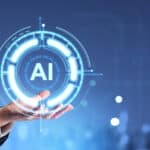Migrating to the cloud: The key to business scalability, flexibility and cost-effectiveness

Whenever a new technology hits the business mainstream, key decision makers try to figure out how it can be incorporated into their existing workflows. This is driven by the need to stay on the cutting edge and not lose out to competitors, as well as the goal of constantly improving efficiency and cutting costs. The most obvious current example of this is AI, which is the hot new piece of technology that businesses are trying to utilize. The other main technology that exemplifies this is cloud computing.
There are many reasons organizations are looking to the cloud as a business enabler, with scalability, flexibility, and cost-effectiveness being only a portion of the long list. Any business that is not currently considering incorporating some aspect of cloud technology into their existing systems will fall behind compared to the rest of the industry, due to the many ways in which it can benefit workflows and help drive revenue.
The era of democratized data needs to be led by DX2.0

Over the last few years, we have witnessed process industries digitizing large amounts of their operations. However, despite this accelerated shift, execution remains uneven. In tandem, leaders have been contended with several business challenges such as disrupted markets, changing consumer behavior, data abundance, remote working and regulatory changes.
This has driven the uptake of further digital transformation (DX) initiatives to stay relevant, maintain market leadership, foster resilience and fuel scalable innovation. As the industry battles an increasingly complex operating environment, companies require more comprehensive DX solutions, or what is being referred to as DX2.0.
Enterprises struggling to implement GenAI

In spite of growing interest and enthusiasm for generative AI, significant challenges are emerging that threaten the success of projects, according to a new report.
The study, from Enterprise Strategy Group (ESG) and Hitachi Vantara, surveyed 800 IT and business leaders across the US, Canada, and Western Europe and finds only 44 percent of organizations have well-defined and comprehensive policies regarding GenAI.
Office workers not worried about losing out to AI

Although many people fear that artificial intelligence could put their jobs at risk, a new study from Jitterbit shows that many see AI as offering new skills and personal growth opportunities.
Based on a survey by Censuswide of 1,022 full-time office workers in the UK and US, the study looks at how workers really feel about AI and the findings reveal a positive views of working with AI technology in professional settings.
Lack of tech understanding at executive level hinders enterprise transformation

Aging, monolithic systems, and a lack of technological understanding at the executive level are limiting organizational agility and responsiveness to disruptions according to a new report.
The IDC InfoBrief, sponsored by IFS and Boomi polled over 1,000 C-level respondents across 12 countries and finds that legacy technology platforms and unfamiliarity with the essential role APIs and composability play in unlocking business data are combining to hamper insights and transformation.
Enterprises struggle to make informed decisions on IT sourcing

Businesses are keen to adopt new technologies in their quest for digital transformation but often face a maze of biased information and incomplete data that hampers the decision making process.
A new report from request for proposal (RFP) specialist Olive Technologies looks at trends and requirements from real-world RFPs, managed through the Olive platform, to help organizations make data-driven, unbiased decisions when selecting IT solutions.
Top priorities for digital transformation strategy implementation

A digital transformation strategy requires a focus on its business value and ability to support key company initiatives. These initiatives are often tied to transformative changes in the business that are connected to customer experience, operational efficiency, and productivity gains. Too often, digital transformation projects are technology driven and lack understanding of business objectives, and do not engage the right stakeholders or clearly detail the needed business / technology roadmap for strategy implementation over a multi-year period.
There are several key actions that should take priority when implementing a digital transformation strategy. These are:
How to ensure customers and developers are on the same page [Q&A]

It should be the case that in the business world systems deliver for the customer. But often there can be conflict between what the customer wants -- usability and feeling valued -- and what the developer is looking to provide -- technical mastery, collaboration and self-serve capabilities.
We spoke to Gilad Shriki, co-founder of Descope to discover how enterprises can satisfy the needs of both.
AI driving increase in modernization spend

A study of 500 senior IT decision makers finds investment in IT modernization is set to increase by 27 percent in 2024, as enterprises look to take advantage of new technologies, such as AI and edge computing, while meeting increasing productivity demands.
But the study from Couchbase finds 59 percent of respondents are worried their organizations' ability to manage data won't meet GenAI's demands without significant investment.
The next era of information management [Q&A]

With the emergence of generative AI technology, information management is undergoing rapid transformation.
The productivity of knowledge workers is critically important to the growth and profitability of businesses, and organizations are turning to solutions that help automate mundane, time-consuming tasks. We talked to Antti Nivala, founder and CEO of M-Files, to find out more aboput this new era of information management.
Complexity leads to trade-off between risk and innovation

A new report finds that 85 percent of executives surveyed believe computing innovation is
increasing risk.
The report from LevelBlue also shows 74 percent think the opportunity of computing innovation outweighs the corresponding increase in cybersecurity risk -- making cyber resilience nearly impossible to achieve.
Understanding the good and bad of no-code solutions [Q&A]

In an era where accessibility is key, companies are increasingly turning to no-code platforms to simplify complex technical processes.
But what fundamental principles should organizations adopt when striving to make intricate technical workflows accessible to a broader audience via no-code? To find out we spoke to Michal Koor, CEO and co-founder of of no-code platform Vectary.
Addressing digital transformation needs in the public sector [Q&A]

Many organizations are embracing the benefits of digital transformation to improve efficiency and customer experience.
Historically the public sector has often lagged behind when it comes to new technology, but digital transformation can have a significant effect in delivering better value and services. We spoke to Praveen Karadiguddi, CEO at Scrumconnect Consulting, to find out more about how transformation projects can work in the public sector.
Why the financial services industry has to start future-proofing their operations

The digital revolution continues at pace. Yet, whilst many industries are looking to harness the transformative impact of AI and other innovative tech, there are many firms in financial services that are simply unprepared and unable to capitalize on the latest advancements.
A reliance on legacy systems and the use of paper-based forms of communication and record-keeping is holding the sector back. Now is the time for the industry to fully embrace digital transformation strategies or risk being left behind. The benefits of going digital for businesses in the financial services industry are huge, encompassing benefits from streamlining operations and cutting costs, to improving customer experience and overall functionality. Whilst adopting new technologies undoubtedly comes with risks, the sector can ill-afford to stand still in the face of such a rapidly changing world.
Cloud Software Group and Microsoft announce $1.65 billion cloud and AI partnership

Cloud Software Group and Microsoft have announced an eight-year strategic partnership agreement, with Cloud Software Group committing $1.65 billion to Microsoft’s cloud and generative AI capabilities. This collaboration aims to strengthen the Citrix virtual application and desktop platform and develop new cloud and AI solutions with an integrated product roadmap.
Under this partnership, Citrix, a business unit of Cloud Software Group, will be the preferred Microsoft Global Azure Partner solution for Enterprise Desktop as a Service when collaborating with joint Azure customers. The companies will jointly support customer success by offering tailored solutions, expert guidance, and support to accelerate customers’ cloud journeys. Citrix will also leverage Microsoft Azure as its preferred cloud solution, integrating the benefits of the Citrix platform with Azure Virtual Desktop and Windows 365.
Recent Headlines
Most Commented Stories
BetaNews, your source for breaking tech news, reviews, and in-depth reporting since 1998.
© 1998-2025 BetaNews, Inc. All Rights Reserved. About Us - Privacy Policy - Cookie Policy - Sitemap.